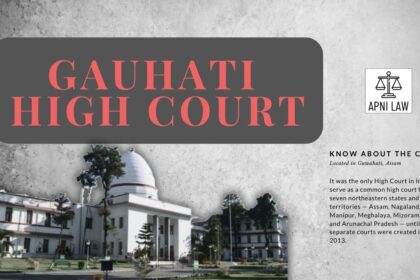The Supreme Court recently reiterated the primary purpose of criminalising cheque bounce under the Negotiable Instruments Act, 1881. It is to ensure the reliability of cheques. The Court emphasised that the compensatory aspect should take precedence over the punitive aspect in such cases. Thus, encouraging courts to facilitate settlements where possible.
The bench comprised Justice Sudhanshu Dhulia and Justice Ahsanuddin Amanullah. They noted the regulatory nature of cheque bounce offences. These were criminalised to uphold public trust in cheques. The bench highlighted the significant number of pending cheque bounce cases. They posed a serious challenge to the judicial system.
“It is important to remember that the dishonour of cheques is a regulatory offence aimed at ensuring the reliability of these financial instruments. Given was the large volume of pending cases. Hence, courts should prioritise the compensatory aspect over the punitive. They should encourage the compounding of offences under the NI Act if the parties are willing,” the Court held.
The Court referred to its earlier ruling in Raj Reddy Kallem v. State of Haryana & Anr. It quashed a conviction despite the complainant’s refusal to consent. Hence, noting that the accused had adequately compensated the complainant.
Present case
In the present case, the Supreme Court set aside the conviction of M/s New Win Export and its partner P. Kumarasamy following a settlement with the complainant, A. Subramaniam. The case originated from a complaint filed under Section 138 of the NI Act after a cheque for Rs. 5,25,000 issued by Kumarasamy was dishonoured due to insufficient funds.
Initially, the Trial Court convicted the appellants and sentenced them to one year of simple imprisonment each on October 16, 2012. Although the Appellate Court later acquitted the appellants, the High Court reinstated the conviction on April 1, 2019, following an appeal by the complainant.
Before the Supreme Court’s involvement, the parties reached a settlement on January 27, 2024. The appellants paid Rs. 5,25,000 to the complainant, who agreed to settle the matter and expressed no objection to the conviction being set aside.
The Supreme Court noted that Section 147 of the NI Act permits the compounding of offences. The Court also pointed out that under Section 320(5) of the Criminal Procedure Code (CrPC), compounding post-conviction requires the appellate court’s approval. The Court emphasised the need to verify the authenticity of settlement documents at the appellate stage.
In this case, the complainant submitted an affidavit confirming the settlement and receipt of the payment, indicating no objection to quashing the conviction. Recognizing the settlement’s authenticity, the Supreme Court concluded that maintaining the conviction would serve no purpose.
“In our opinion, this settlement agreement can be treated as a compounding of the offence,” the Court stated.
As a result, the Supreme Court allowed the appeal, overturning the High Court’s order from April 1, 2019, and the Trial Court’s order from October 16, 2012. The appellants were acquitted, and Kumarasamy, previously exempted from surrendering, was not required to do so.








